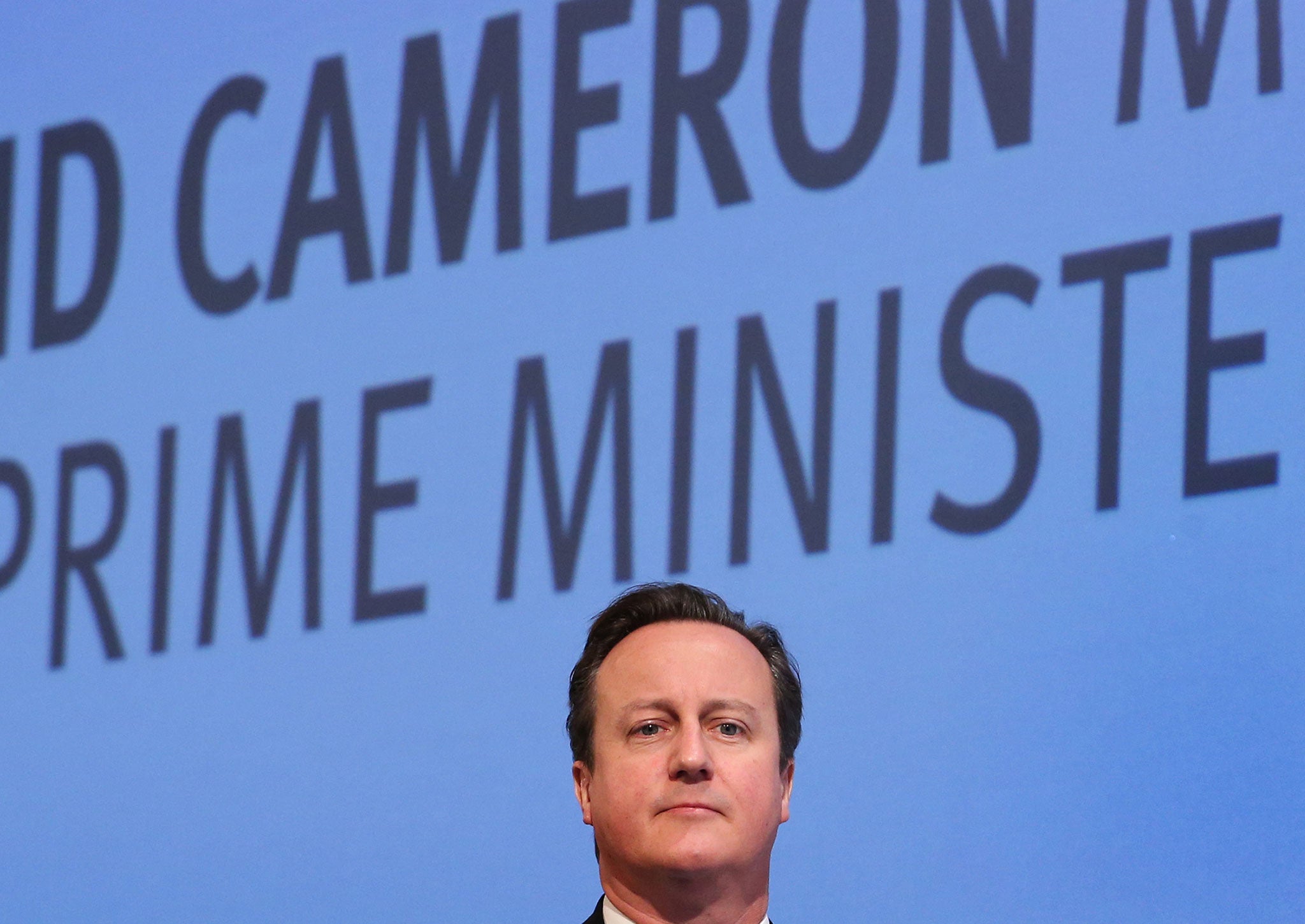Does Cameron really believe in 'British Values'?
Despite saying that he wants to honour the spirit of Magna Carta, his plan to scrap the Human Rights Act suggests otherwise

Your support helps us to tell the story
From reproductive rights to climate change to Big Tech, The Independent is on the ground when the story is developing. Whether it's investigating the financials of Elon Musk's pro-Trump PAC or producing our latest documentary, 'The A Word', which shines a light on the American women fighting for reproductive rights, we know how important it is to parse out the facts from the messaging.
At such a critical moment in US history, we need reporters on the ground. Your donation allows us to keep sending journalists to speak to both sides of the story.
The Independent is trusted by Americans across the entire political spectrum. And unlike many other quality news outlets, we choose not to lock Americans out of our reporting and analysis with paywalls. We believe quality journalism should be available to everyone, paid for by those who can afford it.
Your support makes all the difference.There has been much talk recently about the teaching of "British values", largely in response to the controversy surrounding the so-called Trojan Horse conspiracy to introduce an "aggressive Islamist ethos" in a small number of Birmingham schools.
The debate has been complicated by the fact that many people seem not to know what "British values" are, let alone how to teach them. On the one hand, many of the values presented – fairness and the rule of law, for example – are so anodyne that qualifying them with the adjective "British" seems odd. Although that's not to say that they're unimportant. Most people regard them as universal values.
On the other hand, when people attempt to define our country in terms that are richer and more substantive – as David Cameron did when he called Britain a "Christian country" – the attempts are dismissed by others as obviously false and even divisive. So, how do you overcome the challenge of identifying and celebrating the ties that bind in a diverse and open society such as ours?
The Prime Minister has suggested that young people learn about the Magna Carta in the run-up to the 800th anniversary next year. This is a decent suggestion as far as it goes.
It would be better if young people were invited to reflect on the principles that underpin Magna Carta and the struggle to restrain arbitrary, excessive power ever since.
Even better would be if our young people were given more practical experience of these principles by being invited to apply them to the modern day and their own lives. Tim Berners Lee’s vision of a Magna Carta for the Internet – taking shape through the Web We Want campaign – is a fantastic example of what this idea could look like on a global scale.
Perhaps the Prime Minister himself could benefit from reflecting on the principles of Magna Carta. This might dissuade him and his party from their plans to withdraw the UK from the European Convention of Human Rights (ECHR), suggested by the removal of two of the ECHR’s strongest supporters in the Conservative Party – Ken Clarke and Dominic Grieve – from government.
Magna Carta was so ground-breaking because it involved King John limiting his own power and signing up to a set of commonly agreed standards. It also established that individuals – granted a small subset initially, to be ever-widened over the next 800 years – were equal before the law and granted certain rights.
The ECHR – and the Human Rights Act 1998 which allows British citizens to have their rights enforced by British courts – limits the power of states and enshrines individuals’ rights in law in a very similar way.
The Prime Minister wishes the UK government to renege on its promise to limit its own power because it is inconvenient in this or that instance. This is not dissimilar to the way that King John renounced Magna Carta after he signed it – although King John’s change of heart was much swifter. It is nonsensical to complain that the ECHR or the Human Rights Act constrains the power of governments to act – this is exactly what these legal instruments are supposed to do.
If David Cameron objects to any particular rights enshrined in the ECHR then he should outline which ones they are so that people can discuss and make up their minds whether they would like governments to have free reign in those areas.
If it isn’t the content but the "foreignness" of the ECHR that he doesn’t like, then the suggested alternative of a British Bill of Rights is jingoistic – not to mention absurd given the role Brits played in the original drafting of the Convention.
Whatever his reasons, the Prime Minister denigrates "British values" and the spirit of Magna Carta – at the very time that he claims to be honouring and respecting them – by planning to scrap the Human Rights Act and withdraw the UK from the European Convention of Human Rights. He should think again.
Join our commenting forum
Join thought-provoking conversations, follow other Independent readers and see their replies
Comments